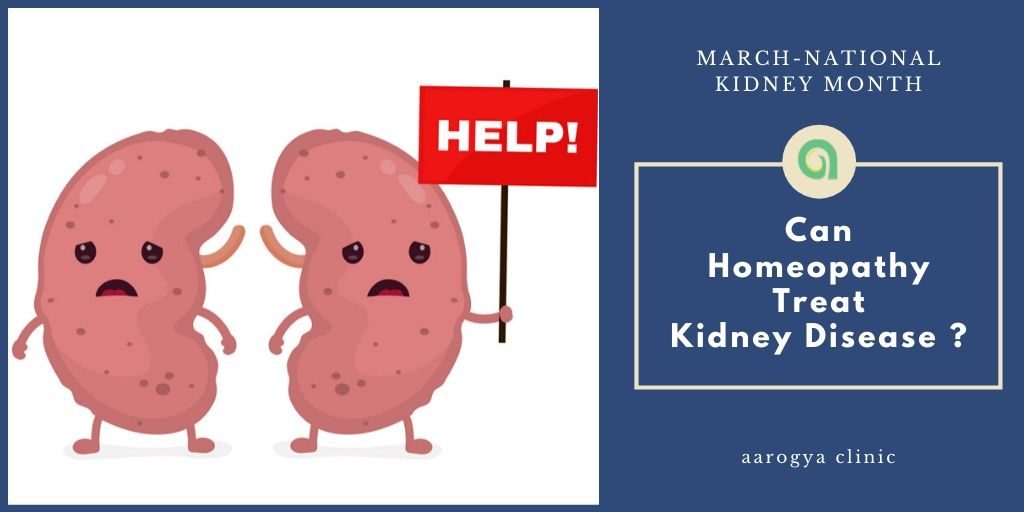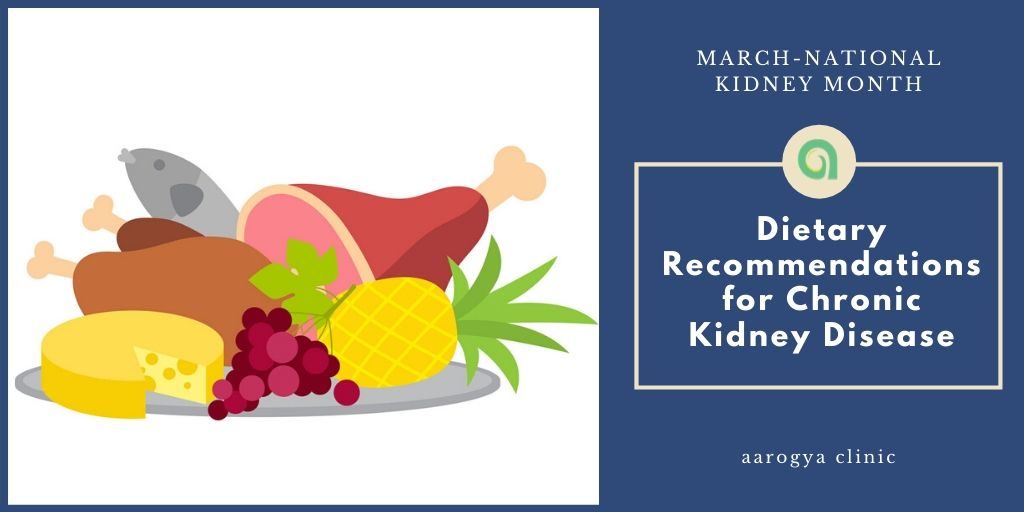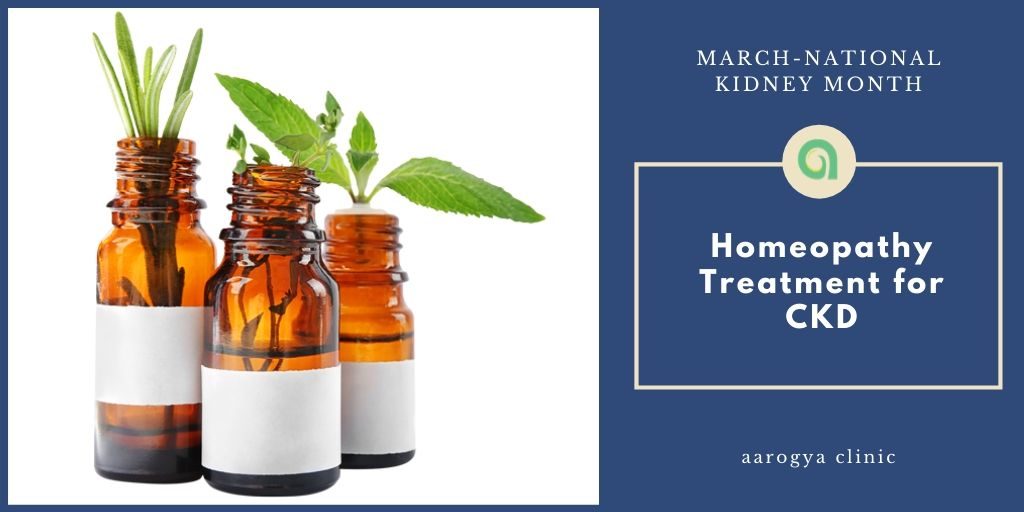Homeopathy Treatment for Kidney Disease in Vellore, India | aarogya clinic

Chronic Kidney Disease (CKD)
Chronic kidney disease is a condition wherein lasting damage has been to the kidneys, and the harmful effects are expected to get worse. Severe damage can also cause the kidneys to stop functioning altogether. This is called end-stage renal disease (ESRD) or kidney failure. Patients with failed kidneys have to live on dialysis or undergo a kidney transplant.
March has been nominated National Kidney Month, with March 12 being recognized as World Kidney Day in a global campaign to raise awareness about the role that our kidneys play in our physiologies and overall health. The campaign aims to reduce the frequency, severity, and impact of kidney disease and the health problems associated with it worldwide.
Causes of Chronic Kidney Disease
While anyone can suffer from CKD, some people are more vulnerable to it than others. Some of the risk factors are:
- Hypertension
- High blood pressure
- Renal artery stenosis
- Prostate diseases
- Existing kidney illnesses like glomercular nephritis, renal calculi, polycystic kidney disease, urinary tract infections, and renal calculi, etc.
Symptoms of Kidney Disease
The following are some of the conditions, which may mean that your kidneys may be damaged:
- Itching
- Nausea and vomiting
- Muscle cramps
- Swelling in the feet or ankles
- Loss of appetite
- Trouble catching your breath
- Too much urine or less urine
- Trouble sleeping
The following conditions could be symptoms of acute kidney failure, where kidneys stop functioning normally:
- Back pain
- Abdominal pain
- Fever
- Diarrhea
- Nosebleed
- Vomiting
- Rashes
Existence of one or more of these conditions may represent serious kidney problems and a doctor should be consulted immediately.
Dietary Recommendations for Chronic Kidney Disease

Treatment for CKD starts with simple dietary changes and lifestyle alterations. Avoid food with added salt and lower the consumption of food items that contain sodium. These are convenience food products like fast food, frozen dinners and canned soups. Foods with added salt include salty snacks, canned vegetables, cheese and processed meat.
Your doctor or dietician may also recommend lesser consumption of foods that contain potassium like bananas, potatoes, tomatoes, oranges, and spinach. These food items can be substituted for apples, carrots, cabbage, grapes, blueberries and green beans all of which have low potassium levels. It is worth noting that may salt substitutes also contain potassium, so you need to be careful, or the kidney failure can get worse.
Failed kidney patients should limit the amount of protein in their meals. A dietician can determine the exact amount of protein your food should have and make appropriate dietary recommendations. The following food items may have to be avoided at all costs: lean meats, milk, eggs, cheese, and beans. A healthy low-protein diet consists of vegetables, fruits, bread, and cereals.
Treatment for Chronic Kidney Disease
A cure for chronic kidney disease does not exist at present. However, treatment and proper medications can halt or slow the progression of the disease and prevent associated conditions from developing.
Patients with CKD are known to be at increased of heart trouble, including a heart attack. This is because of the changes that occur in blood circulation. In a minority of cases, CKD actually causes kidney failure, also known as end-stage kidney failure or Established Renal Failure (ERF). As noted above, the kidneys stop working and the patient has to undergo a kidney transplant or live on dialysis.
Dialysis is a procedure that artificially removes extra fluids and waste products from the blood stream, which is normally done by the kidneys. Sometimes, dialysis is also given to patients at an advanced stage of the disease. Dialysis brings down creatinine levels, maintains the levels of electrolytes and blood proteins and removes wastage. However, dialysis can be painful and may lead to infection in the cavity, which can become life threatening.
Treatment of Complications caused by CKD
Complications caused by chronic kidney disease need different treatment procedures like the following:
- Blood pressure control with ICE inhibitors
- Calcium and vitamin D supplements to strengthen the bones
- Control of blood cholesterol levels
- Iron and Erythropoietin supplements for anemia
Homeopathy Treatment for CKD

Homeopathy cannot cure chronic kidney disease. However, homeopathic remedies can halt progression of the disease with medications at the dispositional or physiological level. This means that we first understand the patient and examine the factors that could have directly and indirectly lead to the disease according to the personality of the patient. Then we prescribe medicines that target these factors. This causes the patient’s own kidney to stimulate its functions. We cannot reverse the damage but can keep creatinine levels low and remove the patient from dialysis without worsening disease conditions.
Homeopathy Treatment for Kidney Disease in Vellore, India | aarogya clinic can effectively repair the kidney damage in patients with early-stage renal failure when damage to the tissues of the kidney is minimal. In such cases, we can take the kidneys back to their normal functioning.
In cases of renal failure caused by diabetes or hypertension, if the structure of the kidney is normally preserved, homeopathy can be of enormous help in blood sugar and blood pressure levels. The medicines also help maintain the levels of other substances in blood like electrolytes and blood urea nitrogen. This goes a long way in improving the general health of the patient and his or her quality of life.


